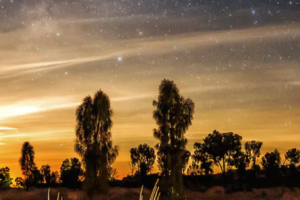From The Conversation: “A body hangs over me. I am so close I can feel there is weight to the body. It seems to twitch in the stagnant air of the theatre with the last tendrils of spirit. There is nowhere to avert my gaze. I remind myself this is the point: to feel the overwhelming sickness and powerlessness Indigenous people so often feel.
I am sitting watching Jack Sheppard’s performance of The Honouring for the Yirrimboi Festival in Melbourne.
Sheppard asked his audience to sit with him and explore themes of grief, Indigenous suicide, and the transitionary healing of Sorry Business in Australia. I hold my grief in my throat. Sheppard gently brings the body down from its hanging place caressing this dear and valued soul that has nowhere to go. Suffering from internal sickness, pervading darkness and deep-seated trauma, the weight of reality and history is too much to bear.
Sheppard tells us this body could so easily have been his . . .
Following the deaths of an alarming number Indigenous young people earlier this year, Australian leaders were urged to declare a ‘national crisis.’
We know suicide is contagious. Within groups of vulnerable people, prior suicide can lead to the occurrence of others. Lifeline reports the suicide rate amongst Indigenous people is more than double the national rate; Indigenous children die from suicide at five times the rate of their non-Indigenous peers . . .
Mick Dodson, when he was Aboriginal and Torres Straight Islander Social Justice Commissioner, got to the heart of the issue in 1994 when he wrote:
The statistics of infant and perinatal mortality, are our babies and children who die in our arms… the statistics of shortened life expectancy, are our mothers and fathers, uncles, aunties and elders who live diminished lives and die before their gifts of knowledge and experience are passed on. We die silently under these statistics . . .
Invasion, frontier violence and massacre exist within living memory of Indigenous families, as do slavery, stolen wages, mandatory sentencing, and myriad racist government policies across Australia that have contributed to harm – and continue to do so.
Given ongoing disadvantage, along with emerging evidence that the effects of trauma can be passed on from one generation to another, for Indigenous people, in a real sense, our ‘history’ rests in our body. Its effect is inescapable, we do not have a choice, we do not get to decide whether intergenerational trauma affects us or not . . .
There is no empathy for the impact of history on Indigenous people in Australia. Our history is not an open book. I only need to mention Australia Day to make my point. We are yet to come to terms with our entangled history, our story and how to begin a process of truth-telling.
Policies aimed at reducing Indigenous youth suicide will fail to achieve their aims if they don’t fully acknowledge the cumulative effects of our history, associated intergenerational trauma and the ongoing violence towards Indigenous Australians.”












